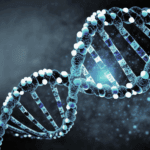Alzheimer’s disease stands as the most common cause of dementia, marked by a slow and relentless decline in memory and cognitive abilities. For years, scientists have sought to unravel the biological mysteries behind this condition, and proteins have emerged as key players in the story.
In the brains of those affected by Alzheimer’s, certain proteins-most notably amyloid-beta and tau-begin to behave abnormally. Amyloid-beta proteins clump together and stick to each other, creating sticky plaques that interrupt communication between brain cells. Tau proteins accumulate within neurons, producing tangles that disrupt the internal transport systems within the cells. These developments don’t occur overnight; rather, researchers feel that protein buildup begins well before symptoms arise, occasionally even up to a decade beforehand.
But there’s more to the story. Current studies have found that the protein landscape of Alzheimer’s is much more complicated than initially believed. Extensive research has isolated several hundred proteins whose levels change during the course of the disease, engaging a broad network of biological pathways-from inflammation and lipid metabolism to iron homeostasis and beyond. Some proteins are present in greater concentrations, while others drop, and few were even associated with Alzheimer’s before, implying there is much to be learned.
To add to the excitement, researchers have started to uncover new protein targets that may show promise for potential treatments. To illustrate, inhibiting the protein Ephexin 5 in animal models has been promising for preventing memory loss even when amyloid plaques are present. This provides hopeful possibilities for treatments that extend beyond merely targeting plaques and tangles.
In short, the changing science of Alzheimer’s is uncovering that proteins aren’t mere lookers but busy participants in the disease process. As scientists proceed to chart out this intricate landscape of proteins, new paths of understanding, detection, and ultimately possibly treating Alzheimer’s are starting to come into view
Beyond the Plaques: A New Theory Emerges
The classic amyloid hypothesis suggested that as amyloid beta proteins (particularly Aβ42) clump together, they form plaques that disrupt brain function. Yet, this view is now under scrutiny. Researchers at the University of Cincinnati, led by neurologist Alberto Espay, have observed that many older adults have amyloid plaques without ever developing Alzheimer’s symptoms. In fact, by age 85, only about 20% of people with these plaques show signs of the disease.
So, what’s going on? Espay’s team proposes a twist: it’s not the presence of plaques that matters most, but rather the loss of soluble Aβ42 protein. This protein, it turns out, plays a protective role in the brain, helping defend against various threats. When Aβ42 gets trapped in plaques, it loses its function-leaving the brain more vulnerable.
“We lose Aβ42. Every single person living with Alzheimer’s disease has low levels of Aβ42, whereas many of us have amyloid plaques in our brain and are cognitively normal,” Espay explains.
Read more: 10 Popular Ultra-Processed Foods Now Linked to Cancer, Study Confirms
Protein: The Unsung Guardian of Brain Health
The new research suggests that Alzheimer’s is less about toxic buildup and more about a critical shortage. When Aβ42 levels drop too low, the brain’s defenses are compromised, potentially triggering the symptoms associated with Alzheimer’s. This insight has major implications for how we think about treatment.
Many current therapies aim to reduce amyloid plaques, but Espay’s analysis of data from over 26,000 participants in clinical trials found something striking: treatments that increased Aβ42 levels-whether intentionally or not-were linked to slower cognitive decline. In other words, boosting this protein may be more beneficial than simply targeting the plaques themselves.
Dietary Protein: Could What We Eat Make a Difference?
While much of the focus has been on proteins inside the brain, another line of research is exploring whether the protein we consume in our diets could influence brain health. A study from the Australian Imaging, Biomarkers and Lifestyle (AIBL) study of aging examined the diets of older adults and found a noteworthy pattern: those who ate more protein had a lower likelihood of having high levels of amyloid in the brain before any memory problems appeared.
The numbers were compelling. Participants with the lowest protein intake were over twelve times more likely to have high amyloid burden compared to those with the highest intake. This suggests that a protein-rich diet might help keep the brain’s environment healthier as we age.
What About Different Types of Protein?
Not all protein is created equal, and researchers are digging deeper into whether the source-animal or plant-matters for cognitive health. A large study in China followed over 3,000 adults for nine years and found that higher animal protein intake was linked to a lower risk of cognitive decline. Interestingly, those who consumed more plant protein, especially from grains, had a higher risk of memory problems, while animal sources like fish and poultry were associated with better cognitive outcomes.
Read more: Surprising Depression Symptoms In Men Are Often Missed, Therapists Say
The Role of Protein Restriction: A Complex Picture
Adding another layer to the discussion, animal studies suggest that reducing protein intake can have some benefits for metabolic health and longevity. In mice engineered to develop Alzheimer’s-like symptoms, a diet with less protein improved glucose control, reduced certain brain changes, and even helped the animals live longer. The effects were especially notable in female mice, where protein restriction improved both metabolism and memory performance.
This might sound contradictory, but it highlights how complex nutrition and brain health can be. The type, amount, and timing of protein intake may all play a role, and what works in mice may not always translate directly to humans.
Zooming In on Other Proteins: The Case of Ephexin 5
While Aβ42 has captured much of the spotlight, other proteins are also under investigation. Scientists at Johns Hopkins University have identified Ephexin 5 as another player in Alzheimer’s. In mouse studies, blocking this protein prevented memory loss, even in the presence of amyloid plaques. Since healthy adult brains have very little Ephexin 5, targeting it could offer a promising new approach with minimal side effects.
Why Do Some People With Plaques Stay Sharp?
One of the enduring mysteries in Alzheimer’s research is why some individuals with significant amyloid buildup remain cognitively healthy. The latest findings suggest that these people may have an exceptional ability to maintain normal levels of protective proteins like Aβ42. Their brains, in effect, keep producing enough of the good stuff to counteract the negative effects of the plaques.
Implications for the Future: A New Direction for Alzheimer’s Prevention
The emerging research points toward a more nuanced understanding of Alzheimer’s. Rather than viewing plaques as the sole villain, scientists are now considering the balance of different proteins and how they interact. This shift opens up new possibilities for prevention and treatment.
- Boosting Protective Proteins: Strategies that maintain or increase beneficial proteins in the brain, like Aβ42, could help delay or reduce cognitive decline.
- Dietary Interventions: Eating a diet rich in high-quality protein, particularly from animal sources, might offer some protection-especially before any symptoms appear.
- Targeting Other Proteins: Drugs that block harmful proteins like Ephexin 5 could provide another avenue for therapy, with the potential for fewer side effects.
What’s Next?
While these findings are promising, researchers caution that more studies are needed, especially to confirm whether boosting protein intake or targeting specific proteins can truly prevent Alzheimer’s in humans. Long-term clinical trials and more detailed dietary studies will help clarify the best strategies.
If you’ve ever wondered whether your daily menu could influence your future brain health, you’re not alone. Science is now catching up to the idea that what we eat-and how our bodies process those nutrients-may play a surprisingly important role in keeping our minds sharp. So, while there’s no magic bullet yet, the evidence is mounting that a well-balanced, protein-rich approach to eating could be one more tool in the quest to outsmart Alzheimer’s.
Final Thoughts
Alzheimer’s disease remains a complex puzzle, but the pieces are starting to fit together in unexpected ways. By shifting the focus from simply clearing out plaques to supporting the brain’s natural defenses, researchers are opening new doors to hope. Whether through diet, medication, or a combination of both, the future of Alzheimer’s prevention may look very different from what we once imagined.
And who knows? The next time you reach for a protein-packed snack, you might just be giving your brain a little extra support for the years ahead.










